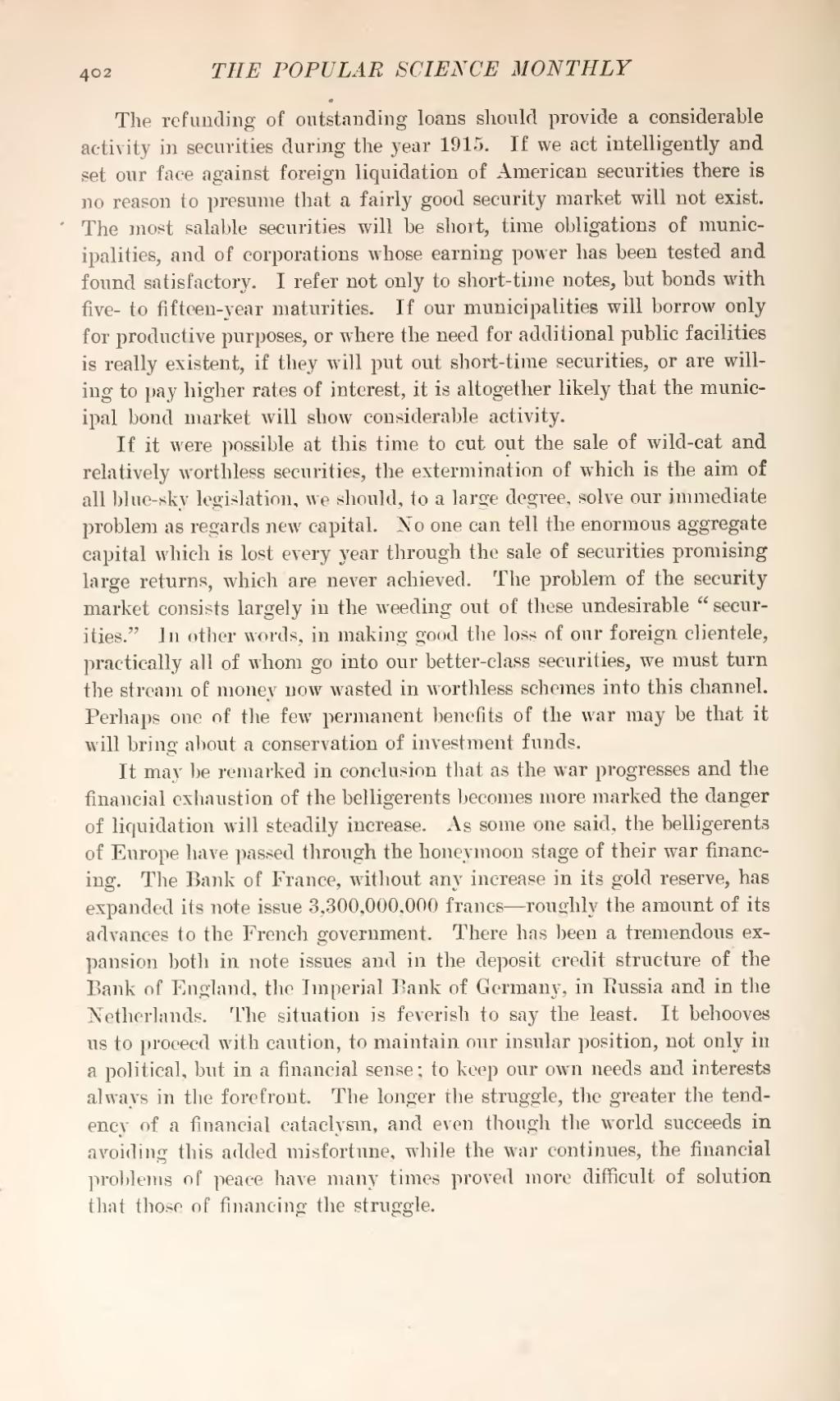The refunding of outstanding loans should provide a considerable activity in securities during the year 1915. If we act intelligently and set our face against foreign liquidation of American securities there is no reason to presume that a fairly good security market will not exist. The most salable securities will be short, time obligations of municipalities, and of corporations whose earning power has been tested and found satisfactory. I refer not only to short-time notes, but bonds with five-to fifteen-year maturities. If our municipalities will borrow only for productive purposes, or where the need for additional public facilities is really existent, if they will put out short-time securities, or are willing to pay higher rates of interest, it is altogether likely that the municipal bond market will show considerable activity.
If it were possible at this time to cut out the sale of wild-cat and relatively worthless securities, the extermination of which is the aim of all blue-sky legislation, we should, to a large degree, solve our immediate problem as regards new capital. No one can tell the enormous aggregate capital which is lost every year through the sale of securities promising large returns, which are never achieved. The problem of the security market consists largely in the weeding out of these undesirable "securities." In other words, in making good the loss of our foreign clientele, practically all of whom go into our better-class securities, we must turn the stream of money now wasted in worthless schemes into this channel. Perhaps one of the few permanent benefits of the war may be that it will bring about a conservation of investment funds.
It may be remarked in conclusion that as the war progresses and the financial exhaustion of the belligerents becomes more marked the danger of liquidation will steadily increase. As some one said, the belligerents of Europe have passed through the honeymoon stage of their war financing. The Bank of France, without any increase in its gold reserve, has expanded its note issue 3,300,000,000 francs—roughly the amount of its advances to the French government. There has been a tremendous expansion both in note issues and in the deposit credit structure of the Bank of England, the Imperial Bank of Germany, in Russia and in the Netherlands. The situation is feverish to say the least. It behooves us to proceed with caution, to maintain our insular position, not only in a political, but in a financial sense; to keep our own needs and interests always in the forefront. The longer the struggle, the greater the tendency of a financial cataclysm, and even though the world succeeds in avoiding this added misfortune, while the war continues, the financial problems of peace have many times proved more difficult of solution that those of financing the struggle.

